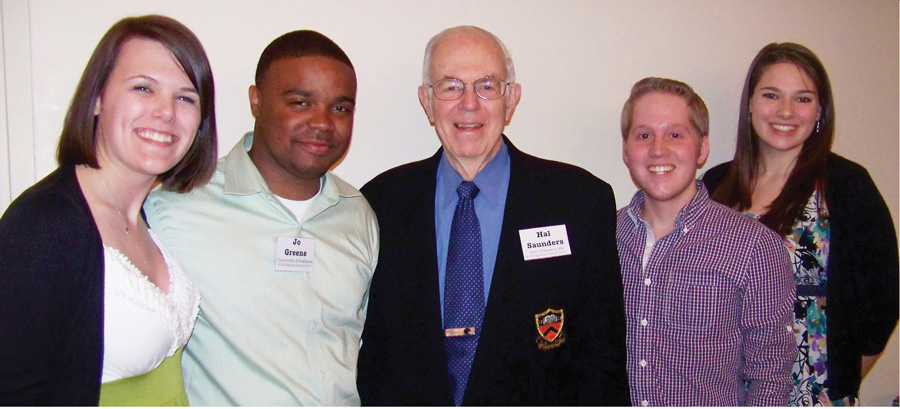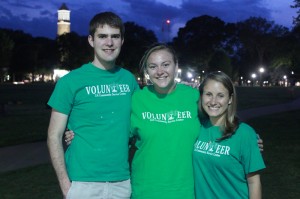Sustained Dialogue and the Interfaith Initiative
- August 20th, 2013
- in Spotlight
Crossroads Community Center currently offers programs such as Sustained Dialogue and the Interfaith Initiative, and new programs are in the works. In fact, one of them may just be the one that you initiate!
Students from varied backgrounds and majors are invited to share their creativity and vision as part of the Crossroads Experience. Join us at Crossroads Community Center and share your talents and energy while developing intercultural relations and knowledge. Here’s who we are, how to learn more about us and how to contact us:
Crossroads Community Center
232 Ferguson Center
The University of Alabama
205-348-6930
www.crossroads.ua.edu
facebook.com/uacrossroads
@crossroads_UA
If you like addressing challenging issues in a respectful, affirming environment, join us at Crossroads and take advantage of the opportunities for sharing cultures, conducting research and creatively engaging in the many cultural challenges on our campus, in the community and around the world.

We live in a multicultural society and it is not a temporary condition. It is here to stay. We seek students who desire to develop the tools for living in and contributing to a multicultural society. Crossroads is your gateway to acquiring these tools.
And what are these tools? One is research. The kind of research we conduct at Crossroads and at our sister program, the Center for Community-Based Partnerships, is known as community-based research or CBR. Only when we conduct research about our programs and interactions do we know what works and what doesn’t, what builds capacity and what doesn’t. Research is fundamental to all learning, and that includes intercultural learning.
In Sustained Dialogue students discuss important social issues, get to know each other, and work on those social issues together. The model may be used in national, community, corporate or campus settings. Effective democracy and economic development depend on building effective relationships. Sustained Dialogue helps make them happen.
Student moderators are selected by The University of Alabama and trained by the national Sustained Dialogue Campus Network. By offering their students experience with the SD model of dialogue, colleges and universities improve their campus communities and enhance the professional and personal lives of their students during and after college. SD helps students make time to understand perspectives of individuals they would not otherwise meet; interact comfortably with all kinds of people; build relationships across communities; and gain communication skills necessary for increasingly diverse academic, social and work environments.
How it works. Students are placed in dialogue groups of 8–10 diverse members who meet one hour a week with two student moderators who help facilitate the conversation about issues such as social identity, campus life and politics.
Interfaith Initiative. Instead of seeing personal beliefs as differences that divide, the Crossroads Interfaith Initiative draws on the work of the Interfaith Youth Core (IFYC.org), to advance a view of religious and philosophical traditions as bridges for cooperation and understanding. This movement promotes:

- Respect for the diverse religious and non-religious identities that people have.
- Mutually inspiring relationships between people of different backgrounds and traditions.
- Common action for the common good.
In spring 2013, UA students attended IFYC’s Interfaith Leadership Institute in Atlanta to learn more about how they could improve interfaith opportunities on campus. As a result of this experience, Crossroads Community Center hosted Dwell Better Together in which panelists of different religions and beliefs addressed students prior to the Community Service Center’s poverty awareness Sleep Out event on the Quad, an event designed to heighten awareness of poverty. Panelists who were Christian, Muslim, Sikh, Jewish, atheist and agnostic spoke about each tradition’s approach to caring for those in need.
Another intercultural tool is creative activity. Creative activity, which is not limited to the arts and humanities, includes art, music, dance, sculpture, writing, communication, the sciences, social science, sports, debate and drama. All of these and more, can be explored as part of the Crossroads Experience.